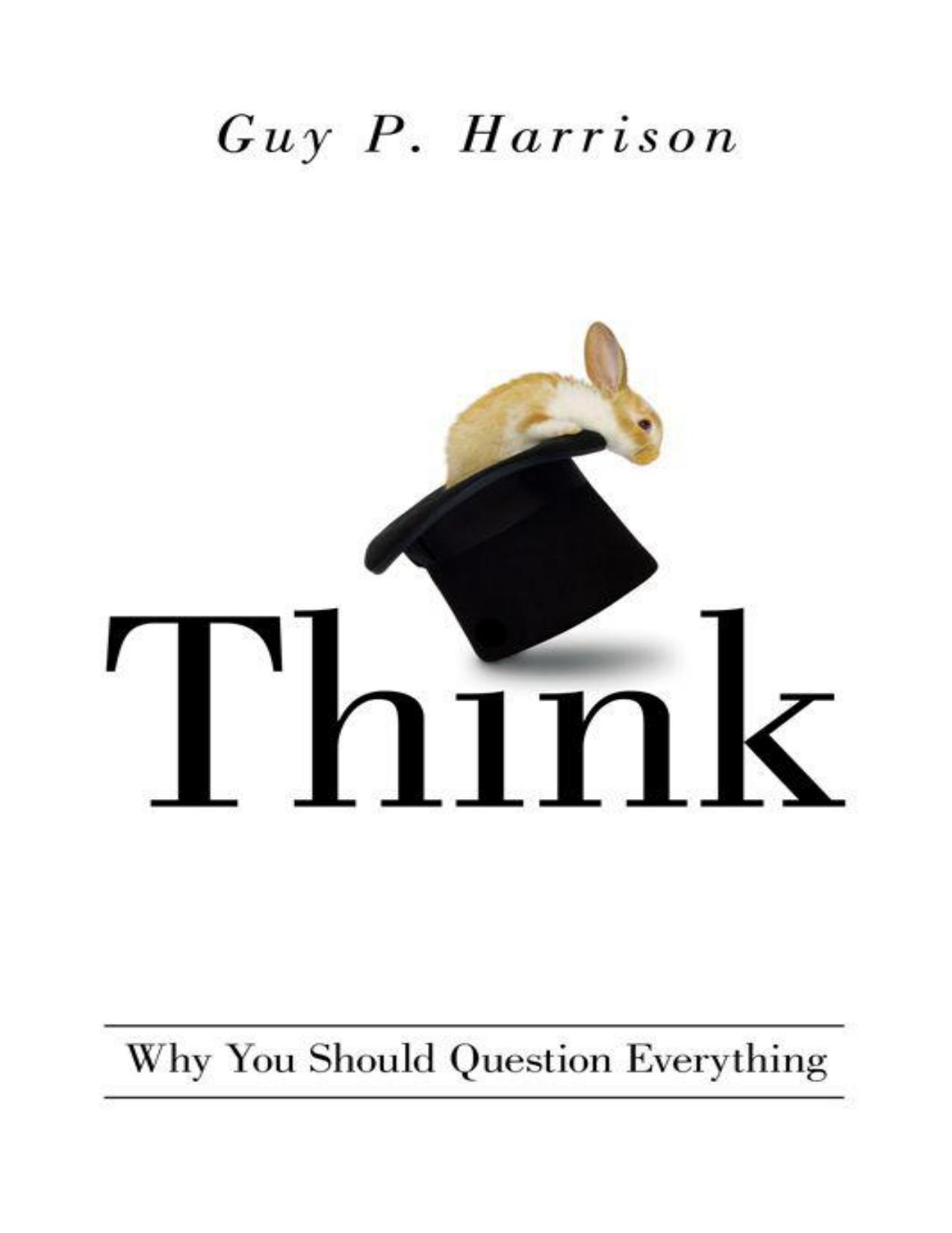
Think
Why You Should Question Everything
کتاب های مرتبط
- اطلاعات
- نقد و بررسی
- دیدگاه کاربران
نقد و بررسی

August 19, 2013
Harrison (50 Popular Beliefs That People Think Are True) is a confirmed skeptic, and he wants everyone to join him. He laments that too many of us accept information without examining it critically, and quoting Carl Sagan, he reminds readers that “extraordinary claims demand extraordinary evidence.” Therefore, if one sees Bigfoot, it’s important to get a DNA sample along with photos. Harrison states that each person needs to question his or her own perceptions, as well as those of others. His section on panaceas is very useful, as he explains the meaning of terms such as “natural,” explaining why these must be deeply examined. In his comments on specific beliefs, such as alien abductions and miracles, Harrison shows some exasperation but provides useful tools for skeptics. On reading the chapter on the care of the brain, this reader wanted more proof of his assertions—which may be a sign of the efficacy of Harrison’s general arguments. Each chapter ends with a reading list, a potential source for further answers. Harrison demonstrates the need for critical analysis in a world of conflicting stories and glib “facts.”

November 1, 2013
Popular science writer Harrison (50 Popular Beliefs That People Think Are True; 50 Reasons People Give for Believing in a God; 50 Simple Questions for Every Christian) provides a lively discussion of ways to improve critical thinking, analyze situations like a scientist, learn to question everything, and understand how the brain works. His approach to becoming a skeptic is solid and always positive, maintaining a clear distinction between an irrational belief and the person who holds the belief. Harrison's upbeat style nicely conveys some of the latest scientific research on how the mind functions. The author unravels unusual claims and weird beliefs, explains how to replace emotionally supportive unsound thinking with rational skepticism, and describes how to continue cultivating a healthy brain-body system. Harrison's inviting style serves the interests of skeptics and scientists who face the onslaught of nonsense, delusion, ignorance, stupidity, and bias that dominates today's muddled culture. This latest work will appeal to fans of Skeptic magazine and Charles MacKay's Extraordinary Popular Delusions and the Madness of Crowds, Michael Shermer's Why People Believe Weird Things: Pseudoscience, Superstition, and Other Confusions of Our Time, and Lynne Kelly's The Skeptic's Guide to the Paranormal. VERDICT Highly recommended for all libraries.--Dale Farris, Groves, TX
Copyright 2013 Library Journal, LLC Used with permission.

























دیدگاه کاربران